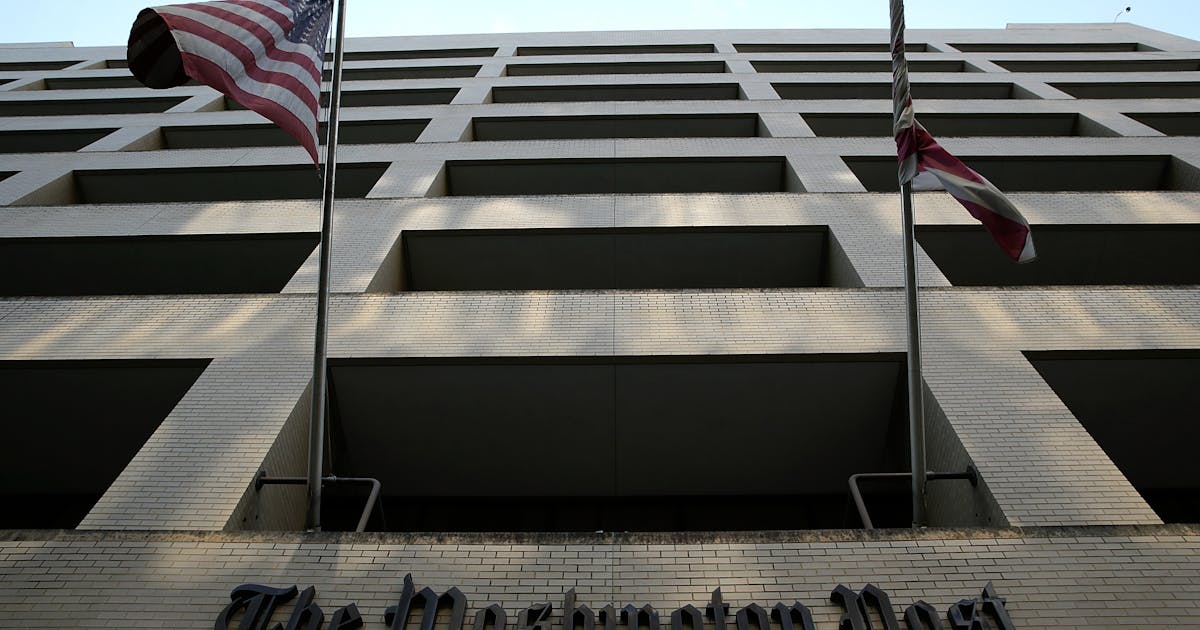In a notable evolution within American journalism, the Washington Post appears to be adopting a more conservative editorial direction. This shift has sparked considerable discussion and apprehension among its traditionally liberal readership. For over half a century, the Post has been known for its progressive journalism, making this change a significant departure.
This article examines the potential reasons behind this shift, the implications for the newspaper’s audience, and the broader media landscape. Understanding these dynamics is crucial for anyone interested in the evolving nature of news and its impact on public opinion.
We will explore the reactions from within the journalistic community, the potential alienation of its core audience, and the role of affluent liberals in shaping media narratives. Join us as we delve into this important development and its potential consequences for the future of news.
The Shift in Editorial Direction
The Washington Post’s move towards a more conservative editorial stance is evident in several ways. Recent opinion pieces and news coverage reflect a leaning that contrasts with its historical progressive identity. This change has not gone unnoticed, with many long-time readers expressing their concerns.
Critics argue that this shift could alienate the Post from its diverse and predominantly liberal audience, particularly in Washington, D.C., where it has long been seen as an institution championing progressive values. This disconnect could impact the paper’s relevance and readership in the long run.
Furthermore, the Post’s evolving stance raises questions about its commitment to balanced political viewpoints. The publication’s traditional role as a voice for progressive ideals is now being challenged, prompting a reevaluation of its place in the media landscape.
Departure of Prominent Liberal Voices
Adding to the concerns is the departure of several prominent liberal voices from the Washington Post. Journalists like Eugene Robinson, E.J. Dionne, and Ruth Marcus have left, with some finding new platforms at publications like The New Republic. This exodus raises questions about the Post’s internal dynamics and editorial priorities.
The exit of these influential figures suggests a possible shift in the Post’s internal culture, potentially favoring conservative viewpoints over liberal ones. This trend could further amplify the perception of a rightward shift, impacting the paper’s credibility among its liberal readers.
Observers note that the absence of these voices could lead to a less diverse range of perspectives in the Post’s coverage, potentially skewing the narrative and undermining its reputation for balanced reporting.
Growing Concentration of Conservative Editorial Voices
The Washington Post is not alone in its perceived rightward shift. Other publications in the capital, such as the Washington Times and the Washington Examiner, are also seen as having strong conservative leanings. This concentration of conservative voices is reshaping the media environment in Washington, D.C.
While the Washington Times has diminished in influence over the years, it remains a part of the conservative media ecosystem. The Washington Examiner, now primarily online, continues to maintain its conservative tabloid roots, adding to the conservative media presence in the capital.
This convergence of right-leaning publications raises concerns about the diversity of viewpoints available to the public, potentially leading to a more polarized and less nuanced understanding of political issues.
Implications for Affluent Liberals
Observers argue that affluent liberals should pay close attention to these evolving media dynamics. The consolidation of rightward editorial stances in major publications represents a significant shift that could reshape public discourse in the nation’s capital and beyond. As the media environment becomes increasingly polarized, those on the left may need to adjust their strategies for engaging with audiences and ensuring that diverse political perspectives are adequately represented in the news cycle.
This situation calls for a more proactive approach from liberal readers and media consumers. Supporting independent journalism, engaging in constructive dialogue, and advocating for diverse voices can help counteract the potential dominance of conservative narratives.
Furthermore, affluent liberals have the resources to support media outlets that align with their values, ensuring a more balanced and representative media landscape. Their engagement is crucial in maintaining a healthy and diverse public discourse.
Media Ownership and Editorial Direction
This moment serves as a reminder of the fluid nature of media ownership and editorial direction. Publications can change their stance over time, reflecting the priorities of their owners and the evolving political landscape. This prompts ongoing discussions about the implications for journalism, democracy, and public trust in the news.
The Washington Post’s shift highlights the need for media consumers to be critical and discerning. Understanding the ownership and editorial biases of different news outlets is essential for forming well-informed opinions.
Moreover, this situation underscores the importance of diverse media ownership, ensuring that a wide range of voices and perspectives are represented in the public sphere. Without such diversity, the risk of echo chambers and skewed narratives increases, undermining the foundations of a healthy democracy.
Conclusion: A Shifting Media Landscape
In conclusion, the Washington Post’s apparent shift towards a conservative editorial stance is a development that warrants careful consideration. The departure of prominent liberal voices, the concentration of conservative media outlets, and the potential implications for public discourse all contribute to a changing media landscape.
Affluent liberals and concerned readers must stay informed and engaged, supporting diverse media outlets and advocating for balanced reporting. The future of journalism and the health of democracy depend on a well-informed and active citizenry.
As media ownership and editorial direction continue to evolve, it is crucial to maintain a critical perspective and promote a media environment that reflects a wide range of voices and perspectives. Only then can we ensure that the news remains a trusted source of information for all.

Leave a Reply